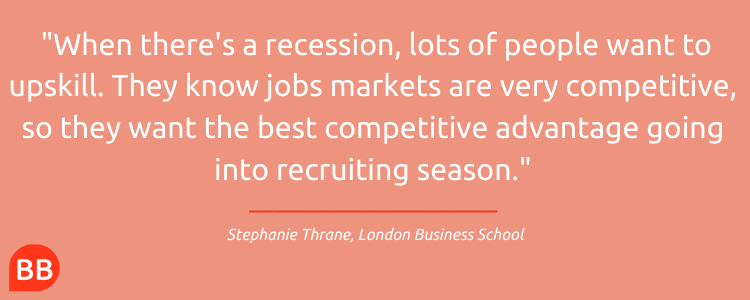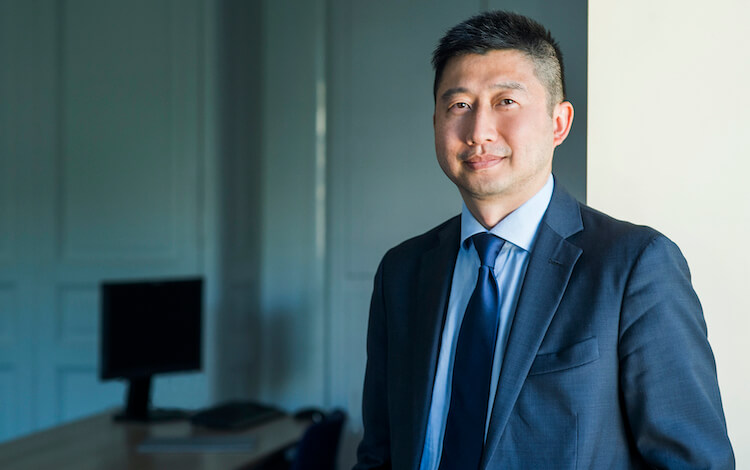
COVID-19 Impact
The coronavirus pandemic, and its impact on the global economy and jobs market, is the most obvious change.
“When there’s a recession, lots of people want to upskill. They know job markets are very competitive, so they want the best competitive advantage going into recruiting season,” explains Stephanie Thrane, recruitment & admissions director at London Business School.
Veronica Sullo, international recruitment coordinator at Bocconi University, says students tend to turn to education in times of recession and uncertainty.
Bocconi saw a strong increase in applications to its two-year masters programs in 2020. “Because the jobs market is a bit tricky right now, students are taking two years to make sure they acquire new knowledge and skills that companies in the future will appreciate,” Veronica says.
IESE Business School received the majority of applications to its Master in Management in the later application rounds, after the coronavirus outbreak.
“We took advantage of COVID, extending our deadlines to allow applicants to apply to the MiM until the end of the summer,” explains Tomofumi Nishida, associate director for MiM and MBA admissions at IESE.
Domestic interest
Shani Pearson, who heads up international recruitment at BI Norwegian Business School, says more domestic undergraduate students decided to stay on for a master’s degree this year, while many Norwegians returned to Norway from abroad for BI’s masters programs.
Hannah Page, admissions manager at WHU Otto Beisheim School of Management in Germany, saw a similar trend.
“A lot of bachelor’s students who had planned on international travel or internships in Asia or the US stayed in Germany,” she says. “Often, they would go on and do a master’s program somewhere else, but with international travel more difficult, we saw a big increase in undergraduate students staying on.”
The pandemic made local European candidates less likely to uproot and study internationally. COVID-19’s impact, says Amy Janssen-Brennan, assistant director for recruitment and admissions at RSM, caused popular alternatives like taking a gap year or doing an internship to become less attractive.
“Continuing to study or doing a second master was a safer alternative and students hope that when they complete their studies the world will have returned to normal.”

RECAPTHA :
b6
10
87
46








